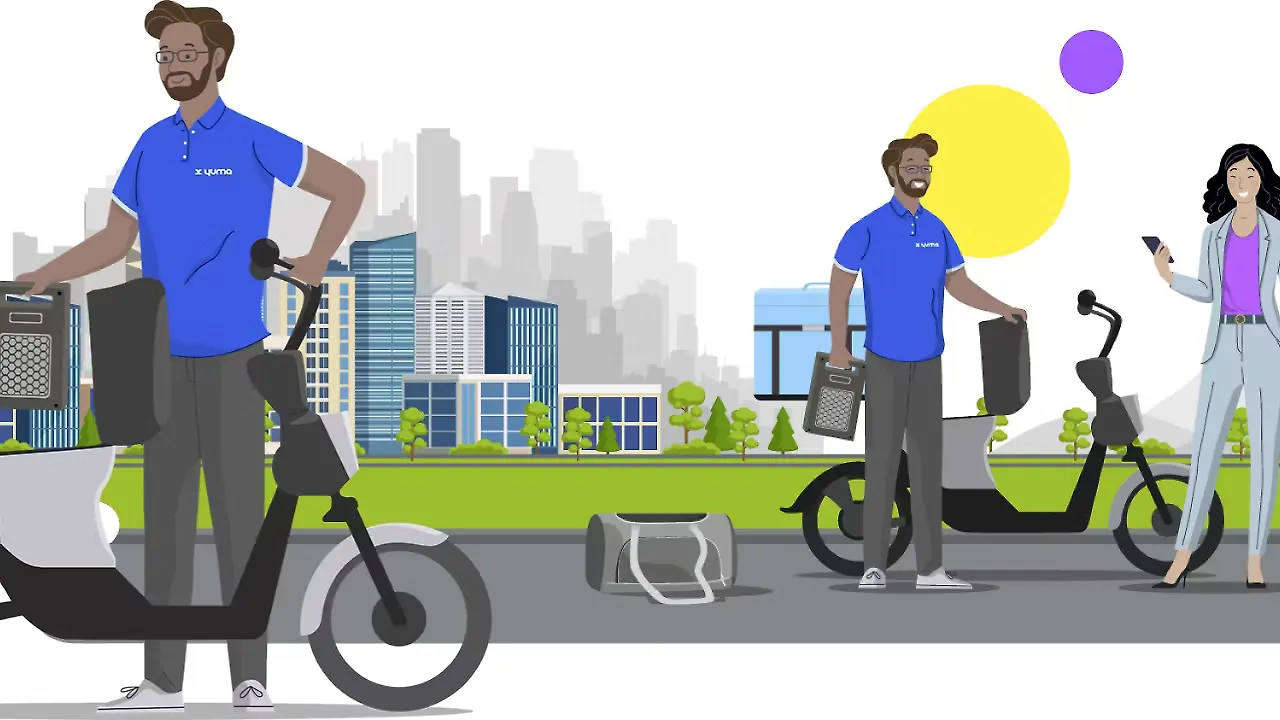
Yuma Energy, a joint venture between Yulu and Magna, intends to follow Yulu's lead and expand its footprint in India.
Speaking to Mobility Outlook, Muthu Subramanian, General Manager and Managing Director, Yuma Energy, said the growth path alongside Yulu becomes natural for Yuma since it is the only client supporting a battery swapping network. Currently, both companies operate in Bangalore, Delhi and Mumbai; earlier, Yulu had noted its expansion plan to enter Hyderabad, Pune, Chennai, Kolkata and Ahmedabad by the next fiscal year.
Currently, all the swap stations are wholly owned by Yuma. However, with expansion, the company aims to collaborate with local players to install battery-swapping stations. Yulu also plans a similar approach for its expansion.
While Yulu remains the sole audience for Yuma Energy, Subramanian noted that the company plans to add more OEMs in the future, including e3Ws. The MD noted that while the current challenge in onboarding multiple OEMs is the lack of standardisation, “it seems easier to add with the e3Ws.”
However, all is not green for e3Ws as well. The GM noted that the current e3Ws use lead-acid batteries, which are not suitable for battery swapping. “While we currently offer LFP technology, we aim to add other technologies. Yuma is and will remain technology agnostic,” he stated.
He noted that the available space in an e3W for batteries is enough to install two to three battery packs, which makes them more accessible for any battery pack, while in the case of a two-wheeler space and, the connector are the main drawback. This is why Yuma aims to collaborate with OEMs that have a similar battery dimension as the available battery packs with Yuma. However, the energy company is also open to collaborating with OEMs in designing battery packs for them.
“It's a two pronged approach where we take our product, and if it suits their needs, they can use it as it is. But if it's a different need, then we are open to working with them to enable that process,” Subramanian explained.
The company is in talks with other OEMs to onboard them and aims to add a few clients by the next financial year, the MD confirmed. However, the focus on B2B clients will remain more in the near term.
While focusing on expanding in India, the company also looks to venture into global markets. Subramanian believes that targeting the ASEAN markets would be a natural growth area as the two-wheeler population in these countries is higher, and swapping becomes an option here. However, he also indicated that the company is open to other charging options, like fixed EV charging options for markets where swapping won’t make sense.
Currently, the company witnesses five lakh swaps a month across the three locations. Recently, Yuma collaborated with the Municipal Corporation of Delhi (MCD) and BSES Rajdhani Power Limited (BRPL) to inaugurate a new battery swapping station at Siri Fort Auditorium in Delhi. The MD noted that the company is also open to partnering with other power suppliers.
Growth Opportunities Amid Roadblocks
EVs and their charging methods are currently the most discussed topics. While charging an EV through a charging port takes some time, the quickest solution is battery swapping, which is only available on two and three-wheelers. This is why the market is becoming more crowded, with new companies entering the battery-swapping business.
As India has the highest density of two and three-wheelers in the market, technologies like battery swapping can be a tremendous boon for the EV sector; nevertheless, the lack of battery standardisation is one of the main roadblocks to the technology's development.
According to Mordor Intelligence, the Indian battery-swapping market for electric two-wheelers is estimated to reach $27.14 billion by 2028, growing at an 18% CAGR over the next five years.
While there are multiple participants in the battery swapping area in the Indian market, ranging from major names like Honda and Sun Mobility to new players like Battery Smart and Yuma, the absence of standardisation means that these players are only confined to a customer base with acceptable battery packs.
The Government announced the battery-swapping policy in the FY24 Union Budget, giving the technology a huge boost. However, the proposed, unconsidered 'Battery Swap Policy' may not give weightage to battery standards.
Notably, one of the key pillars of the first draft of the battery swap policy was to standardise batteries, which was 'shelved' during the last quarter of FY23. Previously, Mobility Outlook reported that an individual closely involved in the process stated that the Government of India, collaborating with industry participants and other stakeholders, is finalising the policy's additional sections.
“The clause for battery standardisation might not appear in the new policy at all. A lot of industry players see no merit in the same,” the official said.
With EV sales increasing month after month, particularly in the two and three-wheeler sectors, it would be interesting to observe how the Government positions the battery swapping programme, especially following the FAME II catastrophe a few months ago.
Also Read